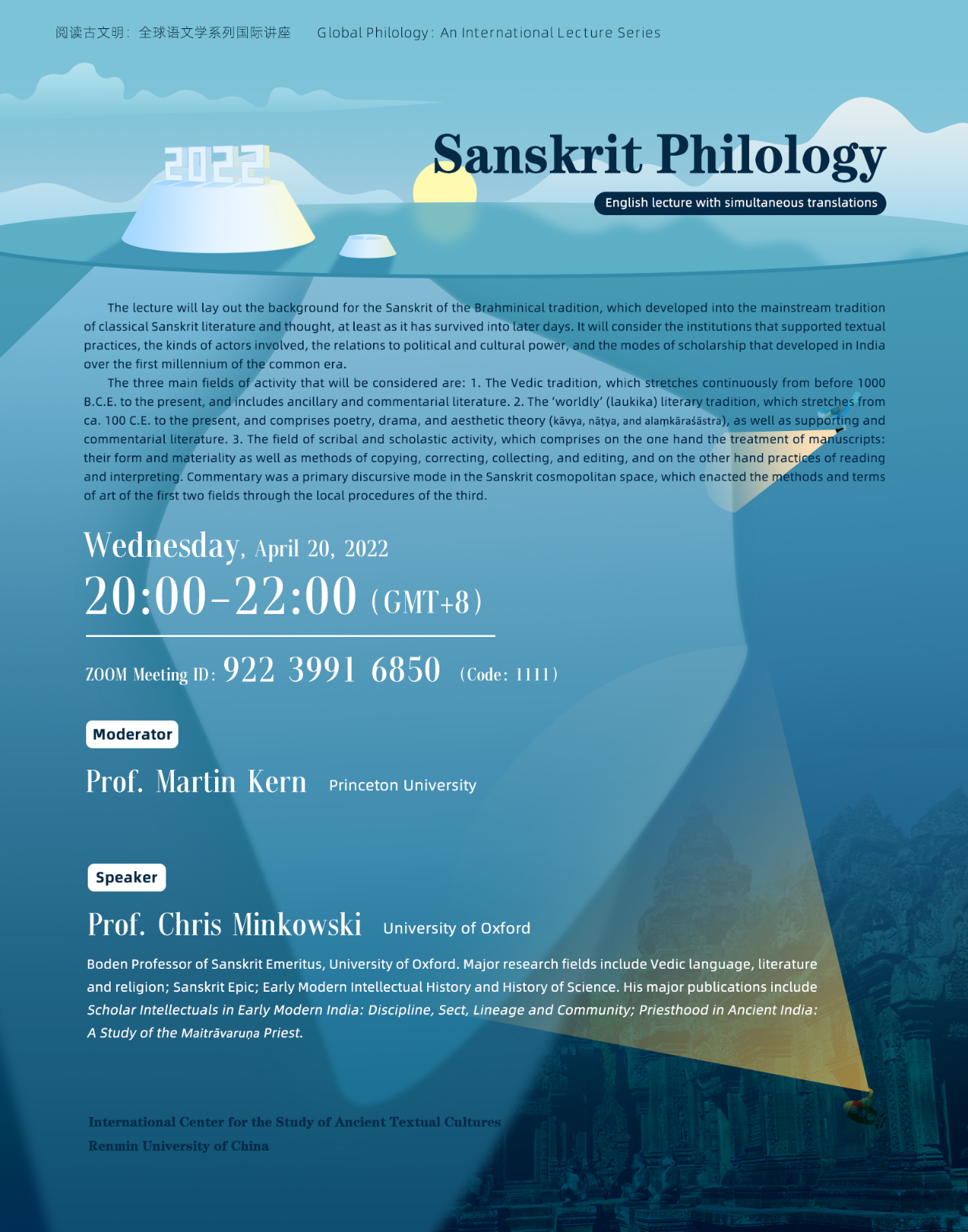[Upcoming]Sanskrit Philology
发布时间:2022-04-18Global Philology:An International Lecture Series
Sanskrit Philology

Title: Sanskrit Philology
Speaker: Chris Minkowski, University of Oxford
Moderator: Martin Kern, Princeton University
Time: 20:00-22:00 (GMT+8), April 20,2022.
Zoom conference number: 922 3991 6850
Password: 1111
Zoom Links:
https://zoom.us/j/92239916850?pwd=MnhBaGxZY1ZpQ3BGMWovRHR1U0h2QT09
About the Speaker:
Chris Minkowski, Boden Professor of Sanskrit Emeritus, University of Oxford. Major research fields include Vedic language, literature and religion; Sanskrit Epic; Early Modern Intellectual History and History of Science. His major publications include Scholar Intellectuals in Early Modern India: Discipline, Sect, Lineage and Community; Priesthood in Ancient India: A Study of the Maitrāvaruṇa Priest.
Lecture Introduction:
The lecture will lay out the background for the Sanskrit of the Brahminical tradition, which developed into the mainstream tradition of classical Sanskrit literature and thought, at least as it has survived into later days. It will consider the institutions that supported textual practices, the kinds of actors involved, the relations to political and cultural power, and the modes of scholarship that developed in India over the first millennium of the common era.
The three main fields of activity that will be considered are: 1. The Vedic tradition, which stretches continuously from before 1000 B.C.E. to the present, and includes ancillary and commentarial literature. 2. The ‘worldly’ (laukika) literary tradition, which stretches from ca. 100 C.E. to the present, and comprises poetry, drama, and aesthetic theory (kāvya, nāṭya, and alaṃkāraśāstra), as well as supporting and commentarial literature. 3. The field of scribal and scholastic activity, which comprises on the one hand the treatment of manuscripts: their form and materiality as well as methods of copying, correcting, collecting, and editing, and on the other hand practices of reading and interpreting. Commentary was a primary discursive mode in the Sanskrit cosmopolitan space, which enacted the methods and terms of art of the first two fields through the local procedures of the third.